11 Ways to Improve ROI on Your Lead Spend
Learn how to convert more of the leads you're paying for into appointments and sales—for higher ROI and revenue.
Use these 21+ questions to find the best lead aggregator for your business and to ensure you get the biggest bang for your buck.
If you’re in the home improvement, home services, or contracting space then you’ve almost certainly heard about lead aggregators—sites and services like Angi, Thumbtack, EverConnect, CraftJack, Porch, and more.
And by “and more” I mean lots more. There are so many lead aggregators available today that it’s hard to know which one is best for your business...or if you should even be using one.
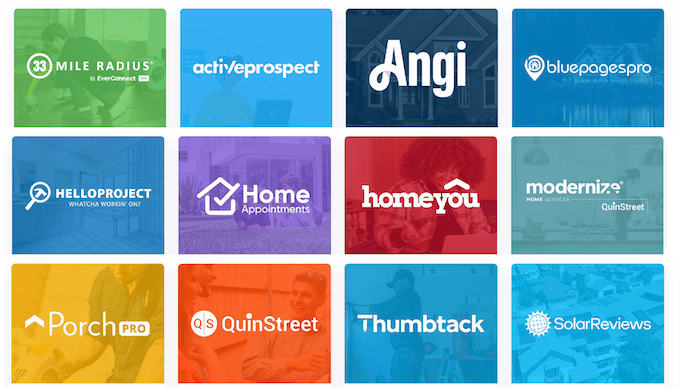
That’s what this post is for: To equip you with the knowledge you need to choose the lead aggregator that will:
A lead aggregator is a website or service that collects leads for a particular niche and sells them to a business. Lead aggregators are common in the home improvement space as there is an abundance of search engines and platforms out there where homeowners can provide their information and project needs.
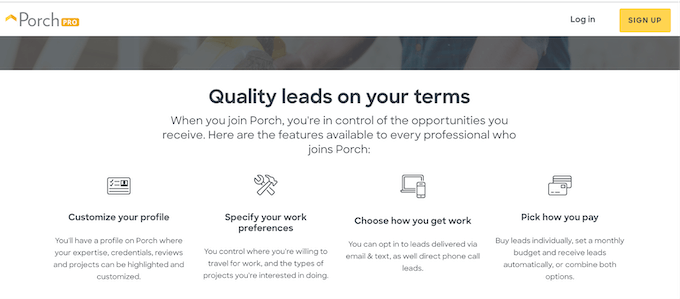
Porch's explanation above is not unlike how most lead aggregators work.
In general, you provide your criteria and they deliver leads to you according to that criteria. But the details of that process—including types of leads, costs, and methods of delivery, vary from platform to platform.
There is too wide a variety of lead aggregators out there to be able to provide one answer to this question. We have several we recommend, as seen in our roundup of the 10 Best Lead Aggregators for Home Improvement Businesses.
Each one has its own unique value proposition, pros, and cons. It all comes down to which one meets your business needs the best. And that’s what the questions in this post will help you to answer.
Before you even go around vetting lead aggregators, make sure you answer these questions for yourself first.
If you're going to purchase a high volume of leads, you need to make sure you know as much as you can possibly know about your ideal customer persona.
The more criteria you can give your lead aggregator, the higher the quality of leads it can deliver to you.
And not every lead is going to be the perfect fit—this comes part and parcel with anything that comes in high volume. But knowing your ideal customer and their nuances will help you to decide which leads are worth pursuing and which ones are not.
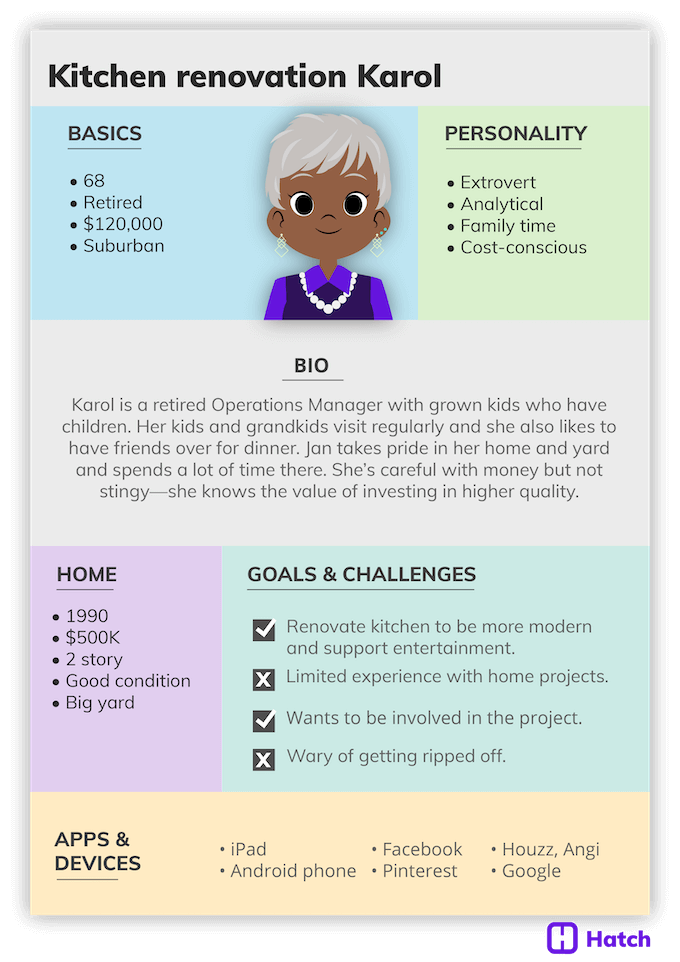
Things to know about your customer persona:
By definition, a lead is someone who is interested in your business and has the potential to become a customer. The level of that potential, however, depends on the quality of the lead and the effectiveness of the sales process you have in place.
This information will help you to identify how much you can afford to pay for a lead and still be profitable. If that number is lower than you’d like, you may need to make some adjustments to your sales process.
Many lead aggregators come with a dashboard of some sort that allows you to manage your leads. But if you’re purchasing a high volume of leads, a dashboard is probably not going to do you much good. You need something more robust that will allow you to:
Your best bet is to have a CRM (customer relationship management software). CRMs are more robust than lead tracking dashboard, and the result is higher quality interactions which means higher success rates and higher ROI.
And there are plenty of tools that are specific to home service businesses. For example, Jobber provides a CRM for small contracting businesses while ServiceTitan is provides one for larger HVAC businesses.
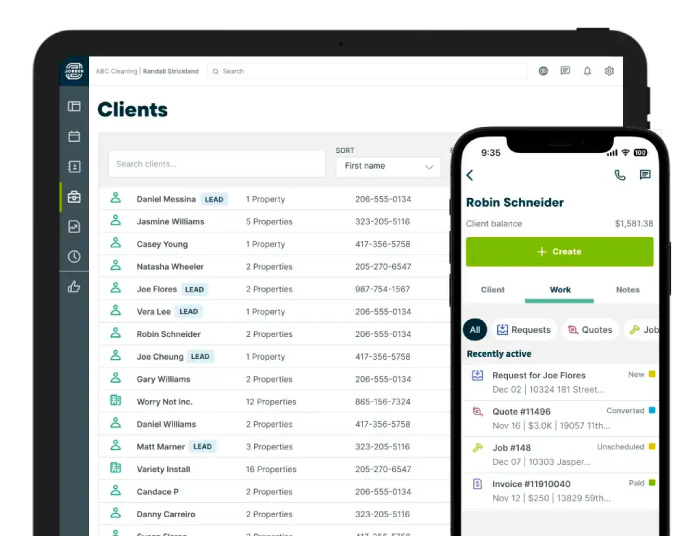
Speed to lead is of the utmost importance in the home improvement space—and yet the biggest challenge. If you want to get the highest return on your investment into lead aggregators, you should be reaching out to every lead within 5 minutes.
But this is pretty much impossible at such a high volume of leads, and with all of the other tasks you have going on—between prospects, customers, and operations outside of sales and marketing...
...unless you use automation.
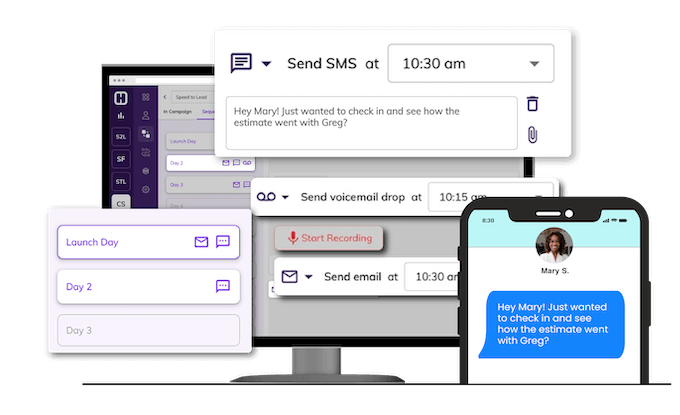
Having a CRM will help with this as you can set rules, workflows, and reminders. But integrating your CRM with a communication tool that will do the actual tasks for you is really the best way to ensure you’re reaching every lead immediately without working your team into the ground.
The ability to reach out to leads quickly is only the first part of the equation for landing a deal. Yes, it will allow you to connect with a higher percentage of the leads you’re paying for, but no, it does not directly equate to a higher ROI. You need to convert those leads into sales in order to see revenue and returns. And too often, we see sales processes with these traits:
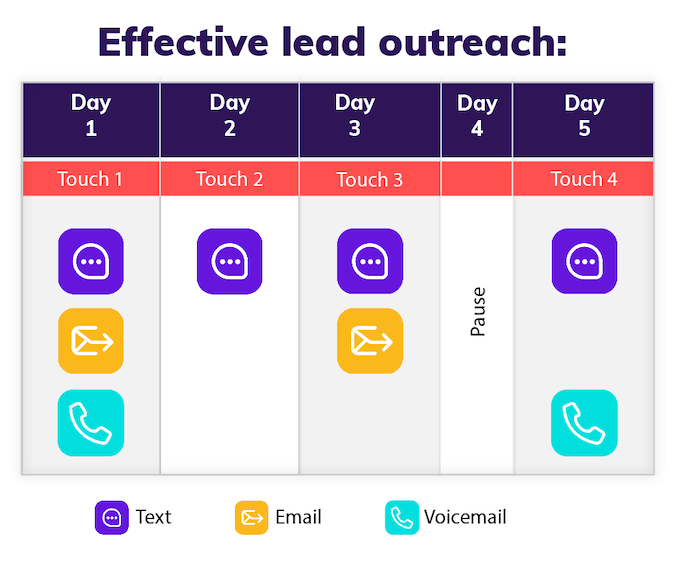
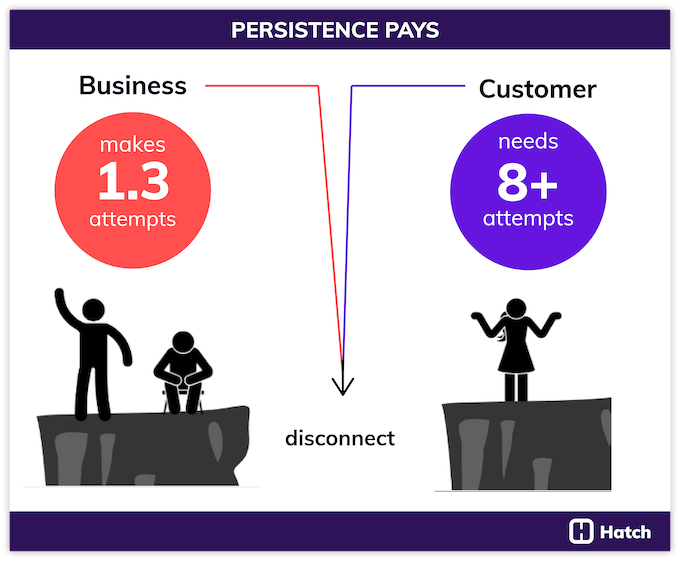
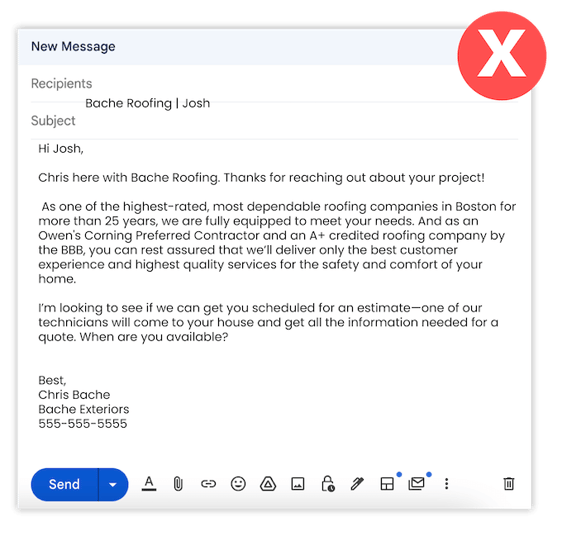
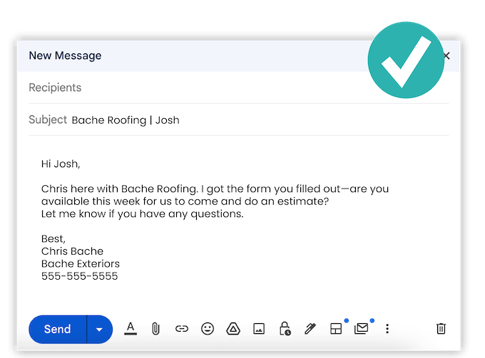
If you are relying solely on a lead aggregator to supply your leads, you are leaving yourself zero wiggle room. You truly can’t afford to make any mistakes in choosing your lead aggregator or in engaging these leads.
And mistakes are often the best way to learn and hone a strategy. It’s best to have other lead generation strategies in place that work concurrently with your lead aggregator. This allows you to:
Other lead generation strategies include:
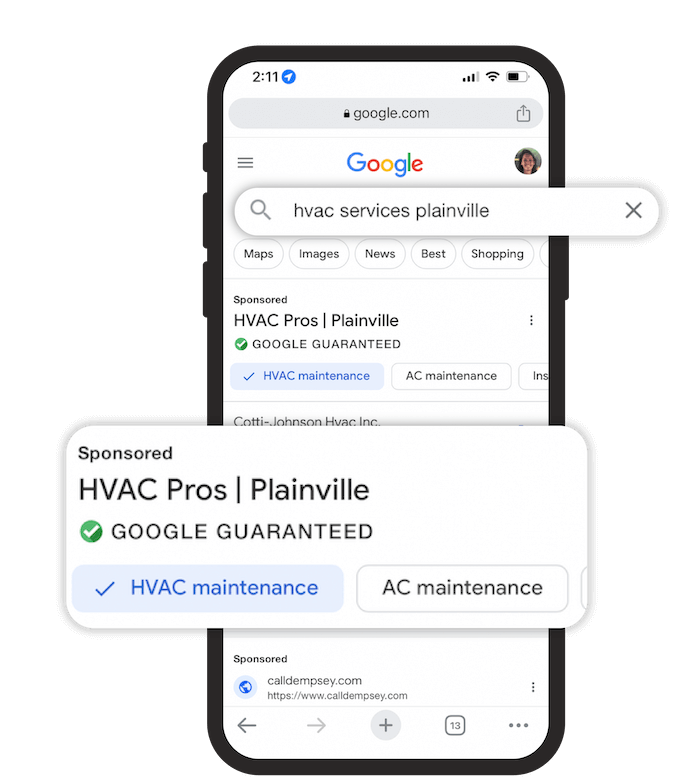
A Google Local Services Ad
Another reason to have these other strategies in place is that you can collect insights on your audience and further refine your ideal customer persona (see question #1!).
To ensure you’re getting the highest ROI on your lead aggregator, you need to be able to establish benchmarks and goals.
If you have a CRM and a standardized sales process in place, it should be easy to establish KPIs and get clear reporting on:
This will help you to answer questions like
You also need to be able to compare the performance of these leads to the performance of leads from other sources.
Okay if you’ve made it through the above questions and concluded you are a good fit for a lead aggregator, now it’s time to do some investigating. Here is an extensive list of questions to dive into in your vetting process:
The leads you secure from a lead provider need to represent real people who are in the market for what you are offering. Find out what data sources the lead aggregator is using to collect leads.
Ideally, you’re looking for a company that vets and verifies leads using a combination of software, partnerships, and even manual QA.
Don’t be afraid to dig deep.
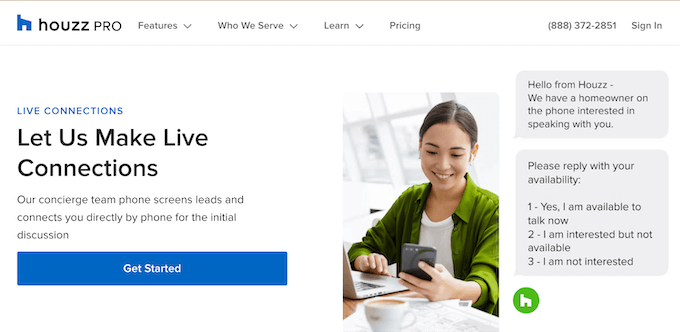
Real-time data is also key here. You want to make sure you’re getting qualified leads based on recent behavior.
There is no shortage of technology and networks out there that can help a company source leads for your business, but there is no replacement for experience.
Experienced lead vendors know the nuances of both the lead generation industry as well as your particular industry. Knowing these ins and outs leads to small details that make a big difference in the quality of the leads you receive and the customer experience.
That being said, find out not only how long they’ve been generating leads, but if they specialize in your industry in particular.
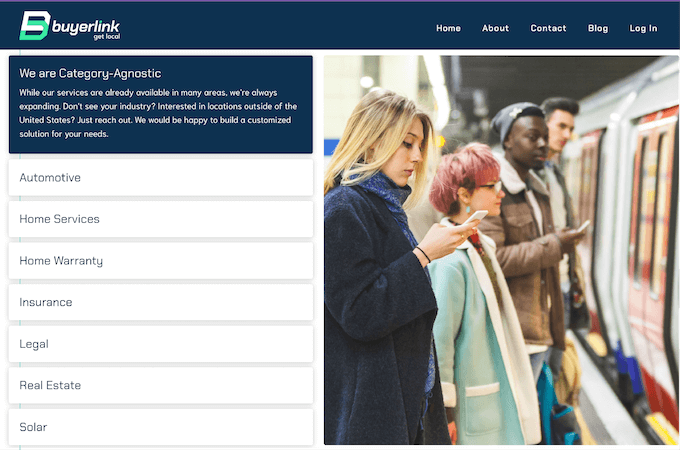
Buyerlink specializes in automotive, home services, home warranty, insurance, legal, and more. Image source
In addition to giving your criteria for what kinds of leads you want, find out if, once you get the list of leads, there is a way of filtering the leads for particular criteria so you can further segment your lists. And find out exactly what that method is.
The exact answer to this question depends on your budget, the level of demand in your service area, your preferences, the type of service you provide, and more. But what you can do is establish some hypotheticals with your provider, and ask for a ballpark range.
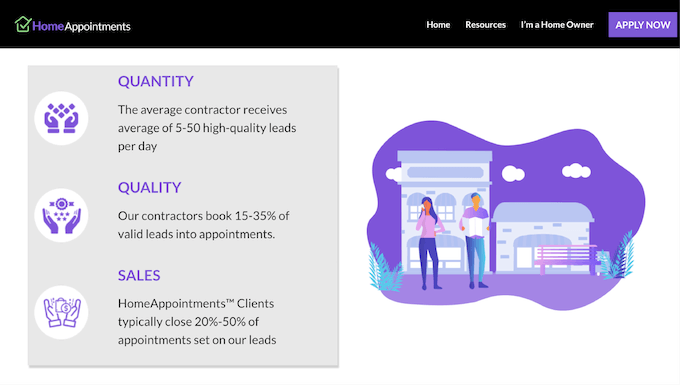
HomeAppointments shares average number of leads per day, appointment set rate, and sales close rate for its clients. Image source
Make sure you’re clear on exactly how you will get the leads.
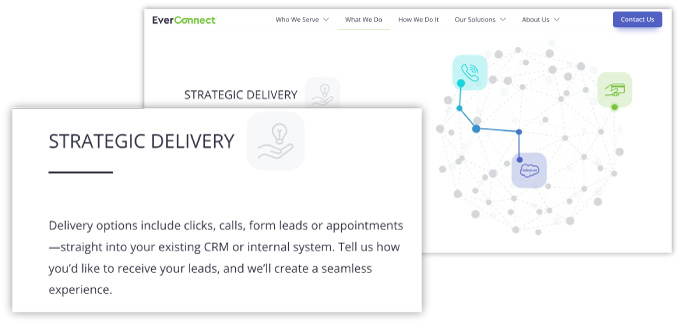
Some lead aggregators provide built-in or add-on tools or features to help you manage your leads. These may include:
Ask about these features and do some investigating on how useful they are deemed by existing customers.
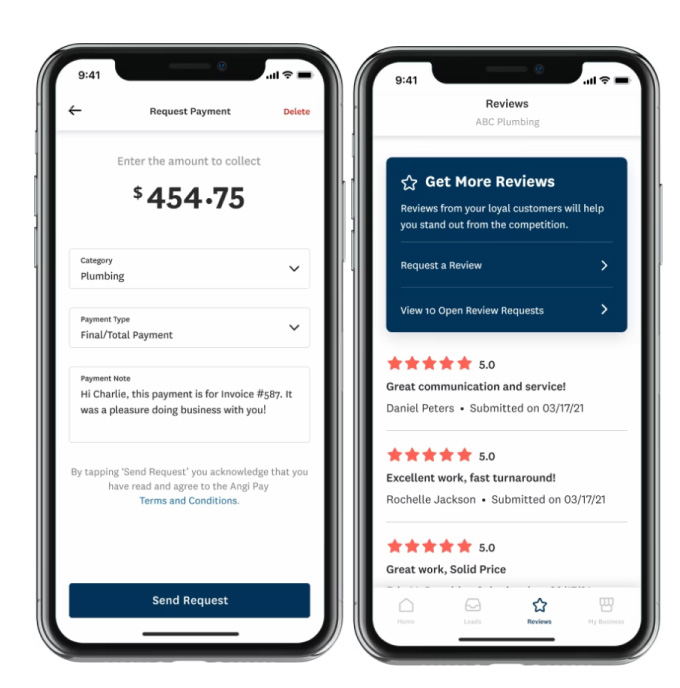
Purchasing the leads is just one thing. Managing and working them is another. Find out from your vendor:
There are two kinds of lead generation services: the first is lead delivery where the leads are just given to you, dropped on your doorstep, basically.
The second is actual agency-style marketing services that can help you to generate your own leads, such as through your website, social media, listings, and more. These types of services range on a spectrum of completely hands off (do it for me) to very hands on (show me how to do it).
Going back to question #6—if you don’t have other lead generation strategies in place, you may want to look for a lead aggregator that also provides lead generation services. Or seek out lead generation services in addition to lead aggregation.
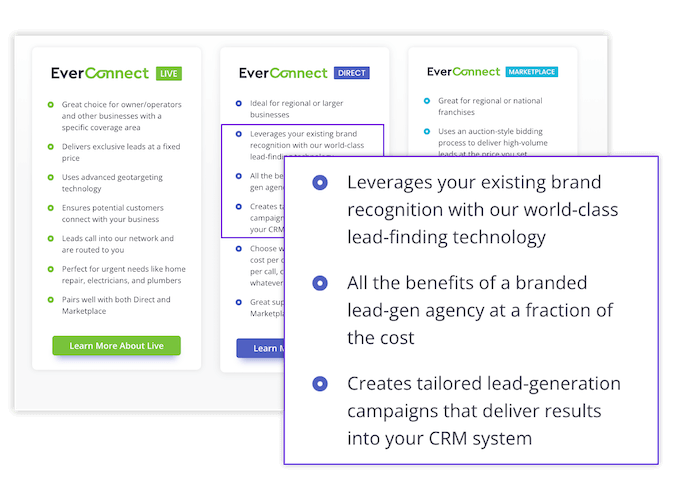
Lead aggregators will vary in their pricing models. Find out how their model works and dig in to find out every detail.
Find out what the minimums are. For example, you may be able to pay a monthly subscription but it may be for a minimum of one year. There also may be a minimum budget required for you to put into your account each month.
A good lead aggregator will have some sort of system in place to help protect against bad leads. You can probably find out what their policy is on their website, but it’s best to discuss it in detail with a representative to make sure there’s no fine print you’re missing.
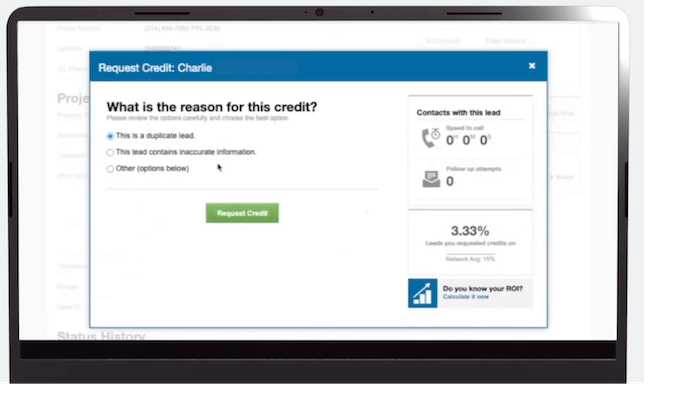
CraftJack shows its easy credit request process. Image source
Lead aggregators typically sell the same lead to 4-5 companies, so ask about this to make sure they’re not above that range.
Make sure you understand not just the quality of the leads you're getting, but the types of leads that your aggregator aggregates. For example, HVAC customer needs can range from minor AC repair to a brand new ventilation systems and maintenance programs.
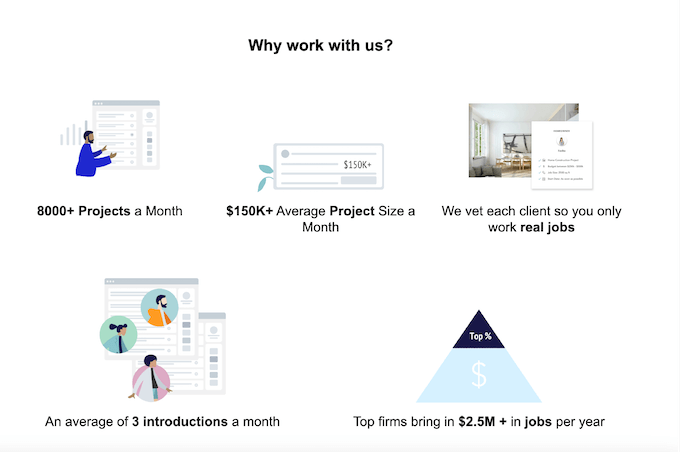
The level of information available on a lead aggregator’s website is usually a good indicator of how much you can trust them. The more clear the information is and the more questions that the site answers before you have to talk to a rep, the better.
The more ambiguous, the more wary you should be about hidden costs or lack of experience in the industry.
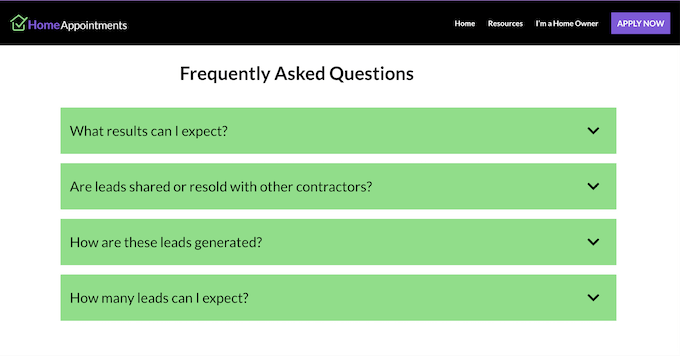
If you want to choose the best lead aggregator for your business, it's important to do your homework and educate yourself. There's no such thing as too many questions when it comes to investing your money into something, especially something as precious as your business! Here are 21 questions to help you find the right service for you:
Learn how to convert more of the leads you're paying for into appointments and sales—for higher ROI and revenue.
Browse our list of the best lead generation websites for contractors in 2023, what they offer, and tips to choose the best company for your home...
Learn how Angi Leads works, how much it costs, and everything you need to know to make Angi Leads worth it for your business.
Be the first to know about new sales and marketing insights to grow your messaging strategy with leads and customers.